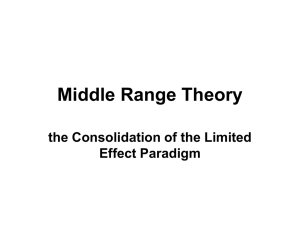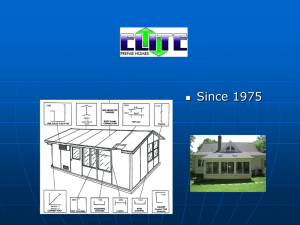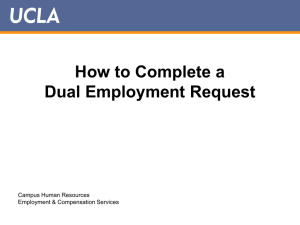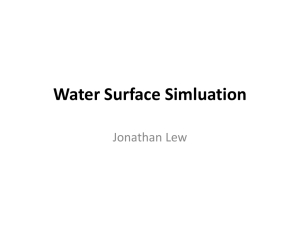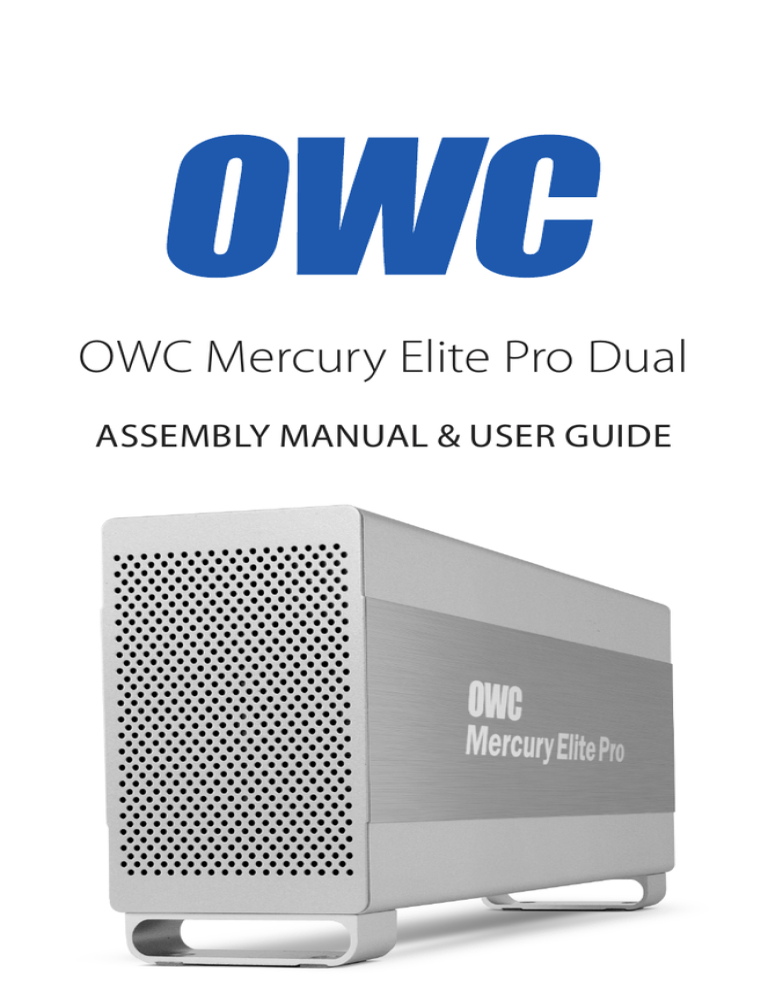
OWC Mercury Elite Pro Dual
ASSEMBLY MANUAL & USER GUIDE
TABLE OF CONTENTS
1. INTRODUCTION............................................................................................1
1.1 MINIMUM SYSTEM REQUIREMENTS
1.1.1 Apple® Mac Requirements
1.1.2 PC Requirements
1.1.3 Supported Drives
1.2 PACKAGE CONTENTS
1.3 ABOUT THIS MANUAL
1.4 LED INDICATOR
1.5 REAR VIEW
1.5.1 Rear Features
1.5.2 Connectivity Notes
2. SYSTEM SETUP..............................................................................................3
2.1 QUICK START
2.2 ASSEMBLY
2.3 RAID SETTINGS
2.3.1 Changing the RAID Mode
2.3.2 RAID Modes
2.4 DRIVE FAILURE
2.4.1 Drive Replacement
2.4.2 Rebuilding a RAID 1
3. APPENDIX.......................................................................................................9
3.1 FORMATTING
3.2 TROUBLESHOOTING
3.3 ABOUT DATA BACKUP
3.4 ONLINE RESOURCES
3.5 TECHNICAL SUPPORT HOURS AND CONTACT INFORMATION
OWC MERCURY ELITE PRO DUAL
TABLE OF CONTENTS
INTRODUCTION
1.1 MINIMUM SYSTEM REQUIREMENTS
1.1.1 Apple® Mac Requirements
1.1.2 PC Requirements
•PowerPC G4 CPU, 128MB RAM
•USB 2.0: OS X 10.2 or later
•USB 3.0: OS X 10.6 or later
•FireWire 800: OS X 10.2 or later
•500MHz Intel® Pentium® 3 CPU, 128MB RAM
•USB 2.0: Windows XP or later
•USB 3.0: Windows XP or later
•FireWire 800: Windows XP or later
1.1.3 Supported Drives
•3.5” SATA hard drives
NOTE: Drives of identical model and capacity are required for RAID 0 and RAID 1.
1.2 PACKAGE CONTENTS
Mercury Elite Pro
Dual
Power Supply and
cable
USB 3.0 (Standard-A
to Standard-B) cable
FireWire 800 (9-pin to
9-pin) cable
1.3 ABOUT THIS MANUAL
Firmware, images, and descriptions may vary slightly between this manual and the unit
shipped. Functions and features may change depending on the firmware version. Please
visit the product webpage for the most recent product specifications.
OWC MERCURY ELITE PRO DUAL
1
INTRODUCTION
1.4 LED INDICATOR
The Mercury Elite Pro Dual has a blue LED on the front grill. This LED will illuminate when
the Mercury Elite Pro Dual is powered on, and the LED will flash with drive activity. Note that
there are no individual LED indicators for the hard drives inside the Mercury Elite Pro Dual,
only one LED for the entire unit.
1.5 REAR VIEW
5
4
1
2
3
1.5.1 Rear Features
1.USB 3.0 port — Attach the included USB 3.0 (Standard-A to Standard-B) cable here.
2.FireWire 800 ports — Attach the included 9-9 pin FireWire 800 cable to one of these
ports and to your computer. Use the other FireWire 800 port to daisy chain other
FireWire 800 devices.
3.Power input — Connect the included power supply here.
4.On/off switch — Turn on and off the Mercury Elite Pro Dual here.
5.Kensington® Security Slot — Connect a security tether here.
1.5.2 Connectivity Notes
•Only one interface (USB 3.0 or FireWire 800) at a time can be used.
•For the safe removal of your drive and to ensure that no data is lost, always eject or unmount the drive from your operating system before unplugging the drive.
•In order for the computer to access volumes larger than 2TB, the operating system
needs to support large volumes (e.g., Windows Vista or OS X 10.4 and above).
OWC MERCURY ELITE PRO DUAL
2
INTRODUCTION
SYSTEM SETUP
2.1 QUICK START
If you purchased the Mercury Elite Pro Dual as an empty enclosure, proceed to Section 2.2,
Assembly. If you purchased the Mercury Elite Pro Dual with drives already installed, the
OWC Drive Guide formatting utility has been installed on your Mercury Elite Pro Dual. Follow
these steps to use the OWC Drive Guide to format your Mercury Elite Pro Dual for OS X (10.4
and later) or Windows (XP and later).
1.Connect your drive to your computer using the proper cable, then turn on your drive. If
you prefer to use a different formatting utility, do so at this time and skip the rest of these
instructions.
2.Your drive will show up as “OWC HD”. Open your drive to view its contents.
3.Open the “Macintosh Setup” or “Windows Setup” folder, depending on the computer’s
operating system, then double-click the OWC Drive Guide application.
4.Follow the simple on-screen instructions to complete the formatting process.
5.Once the formatting is finished the drive is ready to use.
2.2 ASSEMBLY
NOTE: The following assembly instructions are written for users who purchased the Mercury
Elite Pro Dual as an empty enclosure. The instructions show how to open the Mercury Elite
Pro Dual in order to install drives. If you purchased the Mercury Elite Pro Dual with drives
already installed, opening the Mercury Elite Pro Dual before the expiration of the
original warranty will VOID the warranty. If you wish to remove or replace the drives
after the expiration of the original warranty, you may do so at that time.
1. Remove the Mercury Elite Pro Dual from the retail box and the protective plastic bag.
Set the Mercury Elite Pro Dual on its side and look at the bottom of the enclosure. Use a
Phillips screwdriver to remove the two screws, as circled below in red.
OWC MERCURY ELITE PRO DUAL
3
SYSTEM SETUP
2. Once the two screws have been removed,
slide the inner chassis out of the front of the
outer enclosure, as shown to the left. Start
by pushing on the rear of the inner chassis,
then when you are able to get a grip on the
front grill of the inner chassis, pull it the rest
of the way.
3. When removed from the outer enclosure,
the inner chassis will appear as shown below.
Remove the packet of screws and use the
screws as directed later in the assembly
instructions.
4. Install the lower hard drive, as shown below. Slide the SATA connector on the hard drive
into the black SATA connector circled in red. Make sure the drive is firmly seated in the
black SATA connector before proceeding.
OWC MERCURY ELITE PRO DUAL
4
SYSTEM SETUP
5. Install the upper hard drive, as shown below. Twist the black SATA connector
counterclockwise so that the red data cable crosses over the top of the smaller yellow, red,
and black power cables, as circled to the lower left. This ensures that the cables will not
come into contact with the fan during operation. Insert the black SATA connector into the
corresponding connector on the hard drive, then slide the hard drive toward the fan in
order to line up the screw holes in the hard drive with those on the inner chassis. Make
sure the SATA connector is seated firmly before continuing.
6. Using eight of the larger screws from the packet you removed from the inner chassis,
fasten the hard drives into the inner chassis. There are four screw holes on each side of the
inner chassis, as circled below in red.
OWC MERCURY ELITE PRO DUAL
5
SYSTEM SETUP
7. Note that while the inner chassis can slide into both sides of the outer enclosure, there is
only one correct way that will allow the screw holes to line up correctly. To determine the
correct orientation of the outer enclosure with the inner chassis, turn the outer enclosure
on its side and look at the bottom. As shown below, the screw holes at the front of the
outer enclosure are close to the silicone feet. The screw holes at the rear of the outer
enclosure are farther away from the silicone feet.
REAR
FRONT
8. Once you have determined the correct orientation,
slide the inner chassis back into the outer enclosure,
as shown to the left.
9. Once the front grill of the inner chassis sits flush with the edge of the outer enclosure,
turn the Mercury Elite Pro Dual on its side again to look at the screw holes on the bottom.
You should be able to see that the screw holes in the outer enclosure line up with the
screw holes in the inner chassis. Use the four smaller screws to fasten the inner chassis to
the outer enclosure, as shown below. The assembly of the Mercury Elite Pro Dual is now
complete.
OWC MERCURY ELITE PRO DUAL
6
SYSTEM SETUP
2.3 RAID SETTINGS
!
!
WARNING: Changing the RAID mode will destroy the
data on the drives. Be sure to back up your data first! See
section 3.3 for information on proper backup strategies.
2.3.1 Changing the RAID Mode
The RAID mode on the Mercury Elite Pro Dual is controlled by three switches inside the
unit, as shown below. You can access the switches by removing the clip-in fan at the rear
of the enclosure. The following chart shows the switch positions for various RAID modes:
To change the RAID mode, first turn off the Mercury Elite Pro Dual. Access the switches
by removing the clip-in fan, then adjust the switches according to the following chart.
Replace the fan, then turn on the Mercury Elite Pro Dual. When you turn the Mercury Elite
Pro Dual back on, it will be set to the new RAID mode. You can then format the new RAID
volume and use it immediately .
See Section 2.3.2, RAID Modes for more information on each RAID mode that can be
used.
MODE
SW#1 SW#2 SW#3
RAID 1
---
OFF
OFF
RAID 0
----ON
OFF
ON
---
ON
OFF
---
(NOT RECOMMENDED)
SPAN
2TB MODE
2.3.2 RAID Modes
Span Mode:
The drives show up as one large single volume. The total size will depend on the drives
installed; you can use drives of different capacities. A span is a configuration (not RAID) in
which the data is written sequentially across the drives. This combines the capacities of
the drives, but it does not provide any performance or redundancy benefits.
RAID 0 “Drive Striping” Mode:
The drives show up as one large single volume with a size equal to the combined
capacities of both drives. RAID 0 is used when speed is the primary objective, but it does
not have any redundancy for protection. Data is alternated very quickly across both
drives to gain speed by distributing the workload. This allows for the fastest data transfer
rates, but if one drive fails, the whole array can become corrupted and data will be lost.
Always maintain a backup of your data!
OWC MERCURY ELITE PRO DUAL
7
SYSTEM SETUP
RAID 1 “Drive Mirroring” Mode:
The drives show up as one volume with a size equal to the capacity of one of the two
drives used in the array. RAID 1 copies (or “mirrors”) a set of data from the first drive
to the second drive. This is useful when reliability and redundancy are more important
than capacity. When one drive fails, it can be replaced and the data will be rebuilt
automatically. RAID 1 is NOT RECOMMENDED in the Mercury Elite Pro Dual due to the
lack of any indication of a drive failure.
2TB MODE:
When switch #1 is in the OFF position, the total capacity of the drives is limited to a
maximum of 2.2TB for compatiblity with older operating systems. If setting switch #1
to ON does not initially allow volume sizes to exceed 2.2TB, do the following: keeping
switch #1 in the ON position, change to a different RAID level, then turn on the unit.
Format the new RAID volume, then shut off the unit, change to the desired RAID level,
and turn on the unit.
2.4 DRIVE FAILURE
In the event that one of the drives fails, if the Mercury Elite Pro Dual was configured as a RAID
0 or span, the data on the array is lost and the volume cannot be used. In a span, only the
data stored on the failed drive is lost, although data recovery software will be required to
recover the data from the other drive in the span.
2.4.1 Drive Replacement
If the drive was part of a RAID 1, it can be replaced and the array will be rebuilt. In the
meantime, the data will remain accessible through the other drive in the RAID 1. If the
Mercury Elite Pro Dual was purchased with drives already installed and it is still under
warranty, see Section 3.5 for information on how to contact OWC technical support to
arrange for replacement.
If the unit is outside its warranty or was purchased without drives, follow the assembly
instructions in Section 2.2 to access and replace the failed drive. Identifying which of
the two drives has failed may not be simple due to the fact that the Mercury Elite Pro
Dual does not track the health of the drives. This is why RAID 1 is not recommended
in this enclosure. Each drive can be individually removed and tested inside a computer
or another drive enclosure to determine the failed drive, which can then be replaced.
2.4.2 Rebuilding a RAID 1
After the failed drive is replaced, if the Mercury Elite Pro Dual is configured as a RAID 1,
the array will automatically begin the rebuild process when it is turned on. This process
may take from several hours up to more than a day, based on the capacity of the drives. It
is recommended to leave the Mercury Elite Pro Dual turned on during the entire rebuild
process, but if power is interrupted, the unit will continue rebuilding automatically when
power is restored. This device has no way of indicating when a rebuild is taking
place or when the rebuild is done.
OWC MERCURY ELITE PRO DUAL
8
SYSTEM SETUP
APPENDIX
3.1 FORMATTING
For formatting information, including instructions on how to format your Mercury Elite Pro
Dual for Mac or Windows, go to: http://www.macsales.com/format
3.2 TROUBLESHOOTING
Begin your troubleshooting by verifying that the power cable is connected to the Mercury
Elite Pro Dual and to a power source. Then, verify that both ends of your cables are properly
plugged into the computer and the Mercury Elite Pro Dual. If it is still not working properly,
try connecting to another interface (USB 3.0 or FireWire 800) and see if the device works
properly. You can also connect the Mercury Elite Pro Dual to a different computer.
If problems persist, consult our online collection of frequently asked questions (http://
www.macsales.com/FAQ) or see Section 3.5 for information on contacting OWC
technical support.
3.3 ABOUT DATA BACKUP
To ensure that your files are protected and to prevent data loss, we strongly suggest that
you keep two copies of your data: one copy on your Mercury Elite Pro Dual and a second
copy on either your internal drive or another storage medium, such as an optical backup, or
on another external storage unit. Any data loss or corruption while using the Mercury Elite
Pro Dual is the sole responsibility of the user, and under no circumstances will Other World
Computing be held liable for compensation or the recovery of any lost data.
3.4 ONLINE RESOURCES
Data Migration:
For a step-by-step walkthrough of our recommended method for migrating your data
from an old drive to a new one, go to:
http://www.macsales.com/migration
FAQs:
Access our online collection of frequently asked questions for this and other products at:
http://www.macsales.com/FAQ
3.5 TECHNICAL SUPPORT HOURS AND CONTACT INFORMATION
8AM - 8PM (CT) Monday - Friday
9AM - 4PM (CT) Saturday
Live Chat:
www.macsales.com/livechat
Telephone:
(800) 275-4576 (North America)
(815) 338-8685 (International)
Email:
www.macsales.com/ts_email
OWC MERCURY ELITE PRO DUAL
9
APPENDIX
Changes:
The material in this document is for information only and subject to change without notice. While reasonable efforts have
been made in the preparation of this document to assure its accuracy, Other World Computing assumes no liability resulting
from errors or omissions in this document, or from the use of the information contained herein. Other World Computing reserves the right to make changes or revisions in the product design or the product manual without reservation and without
obligation to notify any person of such revisions and changes.
FCC Statement:
Warning! Modifications not authorized by the manufacturer may void the user’s authority to operate this device.
NOTE: This equipment has been tested and found to comply with the limits for a Class A digital device, pursuant to Part 15
of the FCC Rules. These limits are designed to provide reasonable protection against harmful interference when the equipment is operated in a commercial environment. This equipment generates, uses, and can radiate radio frequency energy
and, if not installed and used in accordance with the instruction manual, may cause harmful interference with radio communications. Operation of this equipment in a residential area is likely to cause harmful interference, in which case the user
will be required to correct the interference at his own expense.
NOTE: This equipment has been tested and found to comply with the limits for a Class B digital device, pursuant to Part 15
of the FCC Rules. These limits are designed to provide reasonable protection against harmful interference in a residential
installation. This equipment generates, uses and can radiate radio frequency energy and, if not installed and used in accordance with the instructions, may cause harmful interference to radio communications. However, there is no guarantee
that interference will not occur in a particular installation. If this equipment does cause harmful interference with radio or
television reception, which can be determined by turning the equipment off and on, the user is encouraged to try to correct
the interference by one or more of the following measures:
• Reorient or relocate the receiving antenna.
• Increase the separation between the equipment and receiver.
• Connect the equipment to an outlet on a circuit different from that to which the receiver is connected.
Health And Safety Precautions:
• Use proper anti-static precautions while performing the installation of your hard drives into this drive enclosure.
Failure to do so can cause damage to your drive mechanisms and/or the hard drive enclosure.
• Read this user guide carefully and follow the correct procedures when setting up the device.
• Do not attempt to disassemble or modify the device. To avoid any risk of electrical shock, fire, short-circuiting or dangerous emissions, never insert any metallic object into the device. If it appears to be malfunctioning, contact Other World
Computing technical support.
• Never expose your device to rain, or use it near water or in damp or wet conditions. Never place objects containing liquids
on the drive, as they may spill into its openings. Doing so increases the risk of electrical shock, short-circuiting, fire or
personal injury.
General Use Precautions:
• To avoid damage, do not expose the device to temperatures outside the range of 5° C to 40° C (41° F to 104° F).
• Always unplug the device from the electrical outlet if there is a risk of lightning or if it will be unused for an extended
period of time. Otherwise, there is an increased risk of electrical shock, short-circuiting or fire.
• Do not use the device near other electrical appliances such as televisions, radios or speakers. Doing so may cause interference which will adversely affect the operation of the other products.
• Do not place the device near sources of magnetic interference, such as computer displays, televisions or speakers. Magnetic interference can affect the operation and stability of hard drives.
• Do not place heavy objects on top of the device.
• Protect your device from excessive exposure to dust during use or storage. Dust can build up inside the device, increasing
the risk of damage or malfunction.
• Do not block any ventilation openings on the device. These help to keep the device cool during operation. Blocking the
ventilation openings may cause damage to the device and cause an increased risk of short-circuiting or fire.
• For up-to-date product and warranty information, please visit the product webpage.
Copyrights and Trademarks:
© 2014 Other World Computing. All rights reserved. No part of this publication may be reproduced, stored in a retrieval system, or transmitted in any form or by any means, electronic, mechanical, photocopying, recording or otherwise, without the
prior written consent of Other World Computing. Mercury Elite, OWC, the OWC logo and the Other World Computing logo
are trademarks of New Concepts Development Corporation, registered in the U.S. Patent and Trademark Office and in Canada. Apple, Mac, and Macintosh are trademarks of Apple Inc., registered in the U.S. and other countries. Intel and Pentium are
trademarks of Intel Corporation in the U.S. and/or other countries. Windows is a registered trademark of Microsoft Corporation in the U.S. and other countries. Other marks may be the trademark or registered trademark property of their owners.
®
R1 01/29/14 SL
OWCMANMEPDU3FW
Copyright ©2014 Other World Computing All Rights Reserved. Other World Computing’s
Limited Warranty is not transferable and subject to limitations.





